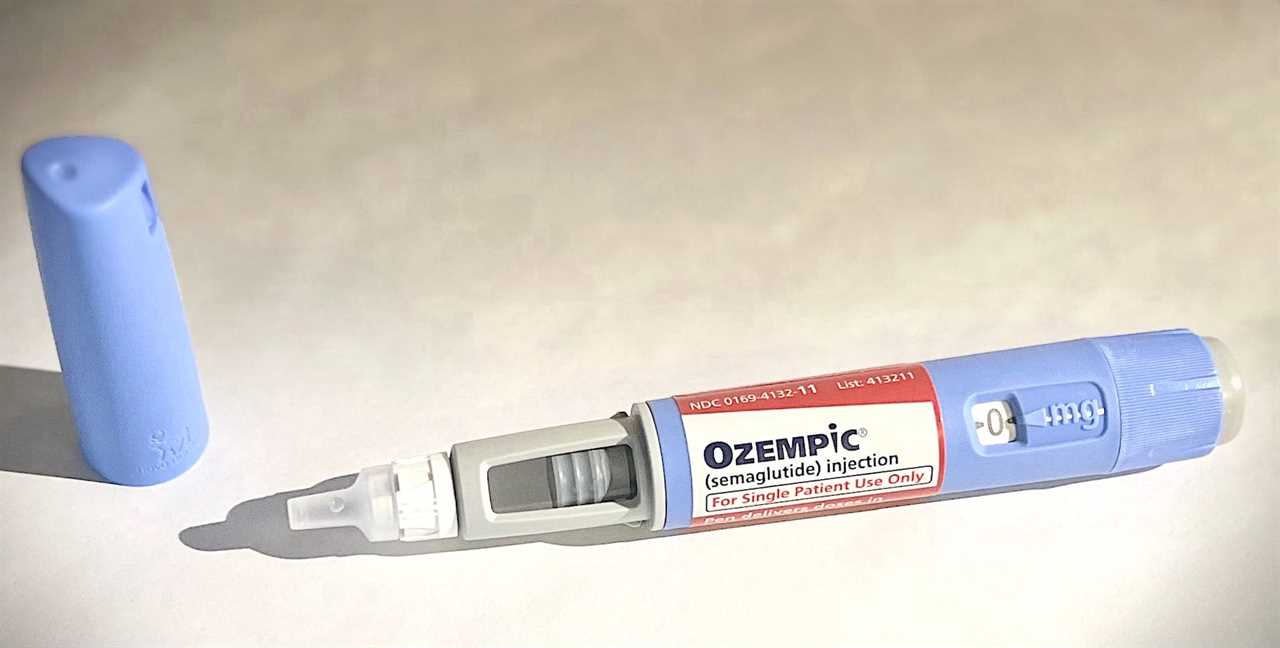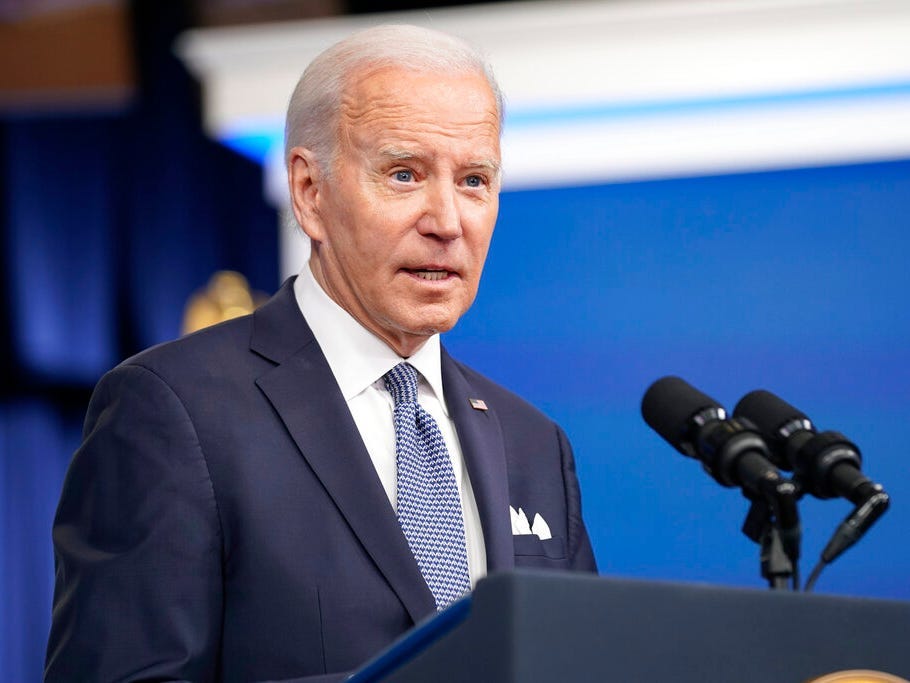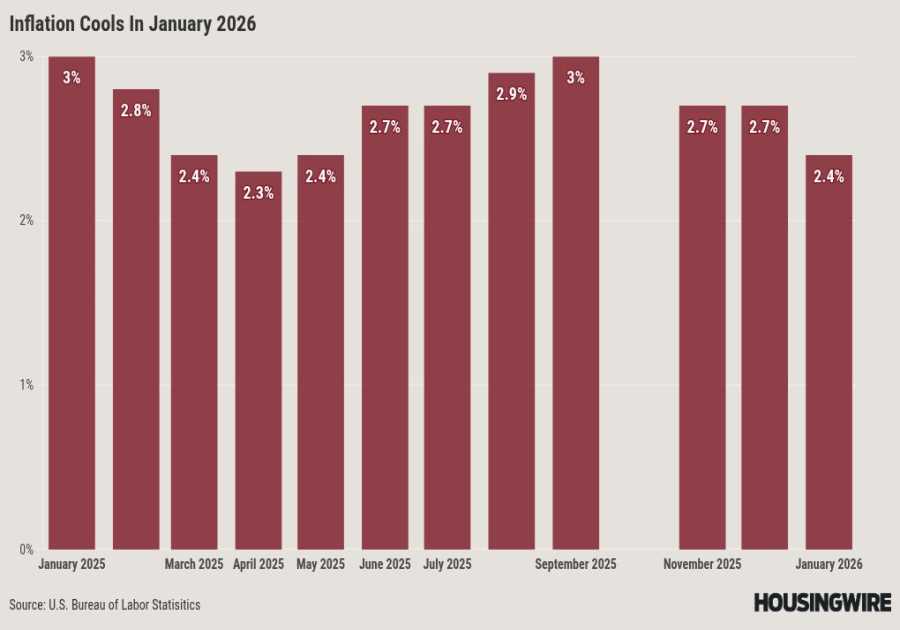Halfpoint Images/Getty Images
- Medicare is barred by law from paying for drugs for weight loss such as Ozempic and Wegovy.
- Expanding coverage could be costly, but it could also help Medicare save money over time.
- There are three routes lawmakers and regulators could use to add coverage for weight-loss drugs.
Older Americans hoping to get their hands on powerful weight-loss drugs such as Ozempic and Wegovy may find it impossible to access them.
That's because Medicare, the federal program that provides health coverage for people 65 and older, is strictly prohibited by a 2003 law from paying for weight-loss medications. Without insurance, the drugs are unaffordable, with price tags that can top more than $1,000 a month.
A big push is underway by drugmakers and other groups to get Medicare to pay for the drugs, but the potential high costs to the program are a sticking point.
One analysis by Vanderbilt University researchers in March estimated that if just 10% of Medicare beneficiaries were treated with Wegovy, the cost to the program would total $26.8 billion a year and premiums for drug plans would increase.
Still, covering the drugs could provide big benefits.
Researchers at the University of Southern California wrote in an April paper that if all eligible Medicare beneficiaries were treated with weight-loss drugs, Medicare could save $176 billion in medical costs over 10 years, driven by fewer hospitalizations, surgeries, doctors' visits, and other medical services. This estimate didn't account for the cost of treatment.
Should Medicare cover weight loss medication, it could also unlock access for people who have private coverage.
"A decision by Medicare to cover weight-loss drugs would put pressure on employers and other private insurers to cover weight-loss drugs too," said Tricia Neuman, a senior vice president at KFF who co-authored a recent brief on the subject.
There are three potential strategies that could be used to expand Medicare coverage to weight-loss drugs. Congress could pass a law allowing the program to cover the drugs; the Biden administration could set up a new payment model; and, according to Novo Nordisk, the Centers for Medicare and Medicaid Services could side-step the prohibition by reframing how it characterizes anti-obesity treatments.
Congress could pass a law allowing Medicare to cover weight-loss drugs

Insider
The most obvious route to Medicare coverage is to pass legislation that would allow Medicare Part D — the prescription drug benefit — to cover drugs used to treat obesity.
The leading bill that would do this, called the Treat and Reduce Obesity Act, has been stuck in Congress for more than a decade. It was last proposed in 2021 and hasn't been reintroduced in the current Congress.
Still, some champions of the bill are optimistic about its chances, as support for the legislation has grown over the years, reaching 176 co-sponsors. Drugmakers, including Novo Nordisk and Eli Lilly, as well as other healthcare companies and patient advocacy groups are lobbying for Congress to take action.
The Biden administration could create a new innovation program

AP Photo/Andrew Harnik
If Congress doesn't act, the Biden administration could give people with Medicare access to weight-loss drugs by testing a new payment model, according to the brief published May 18 by KFF.
The administration has authority under the Affordable Care Act to experiment with new ways of paying for healthcare — and waive certain Medicare rules — through the CMS' Innovation Center. It also can pilot new models through Section 402 of the Social Security Amendments of 1967, according to KFF.
In recent years, the federal government has used these pathways to lower prescription drug costs, KFF said.
For instance, the Trump administration used the Innovation Center to test capping out-of-pocket costs for insulin for those in participating Medicare drug plans, for example. The Biden administration used its authority under Section 402 to allow Medicare beneficiaries to get up to eight at-home COVID-19 tests per month at no cost.
Medicare could redefine anti-obesity medications, according to Novo Nordisk

Li Ran/Xinhua via Getty Images
Novo Nordisk, the pharmaceutical company behind Ozempic and Wegovy, has argued that there's another route to expanding Medicare coverage.
In a letter to CMS in February, Novo Nordisk said the federal law barring Medicare from paying for "agents when used for anorexia, weight loss, or weight gain" doesn't apply to the latest anti-obesity medications because they do more than help people lose weight. These medications are more comprehensive treatments that also have some cardiometabolic benefits, such as improved blood sugar levels, according to the letter.
Novo Nordisk said CMS has authority to recognize that anti-obesity medications "are not 'agents for weight loss,' but rather clinically recommended treatments for a chronic disease — obesity, and may therefore be covered under Part D."
Read More
By: [email protected] (Shelby Livingston)
Title: Medicare is prohibited from paying for weight-loss drugs. These are the 3 potential ways to change that.
Sourced From: www.businessinsider.com/how-medicare-could-expand-access-to-weight-loss-drugs-2023-5
Published Date: Mon, 22 May 2023 13:00:41 +0000
.png)





